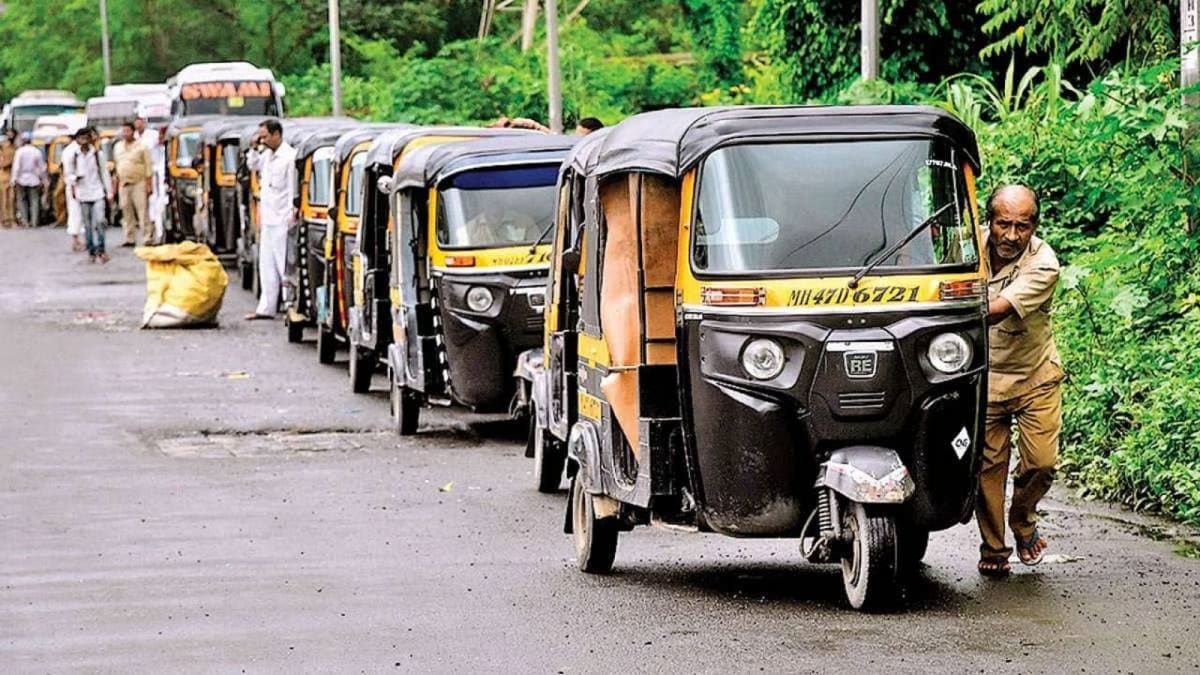A sudden CNG shortage left thousands of Mumbaikars stranded on Monday, as auto-rickshaws, app-based cabs, and even some Best’s CNG-powered buses stayed off the roads, making it difficult for people to get to work, school, hospitals and railway stations.
The disruption began after a major gas pipeline supplying CNG to Mumbai , Thane and Navi Mumbai was damaged. With supplies cut, several fuel pumps were forced to shut down, creating a chain reaction that hit the city’s transport system.
Here’s a breakdown of what happened, how it affected daily travel in the city, what caused the crisis, and when the situation is expected to return to normal.
Auto, cab crisis hits Mumbai hard
Mumbai’s week got off to a rough start as a large number of auto-rickshaws and kaali-peeli taxis struggled to refuel, leaving many drivers off the roads. Several had already been rationing whatever CNG they had since Sunday, and by Monday, the shortage had become hard to ignore.
The impact was visible right from the airport. At Mumbai’s Chhatrapati Shivaji International Airport, long queues formed at the auto stand, with wait times stretching from 10 to 45 minutes, Mid-Day reported.
Sumit Kumar, who had just returned to the city, said he had already been waiting for 45 minutes.
“I need to reach the nearest bus stop to catch a bus to Lonavala. I have been waiting for 45 minutes, and no one is ready to go. The airport staff is trying their best and even speaking to the drivers, but no one is agreeing,” he told the outlet.
For those travelling longer distances, fares shot up sharply. Amish Shah said he was quoted Rs 1,400 for a ride to Mira Bhayandar.
“We tried bargaining, but the driver refused, so we have been waiting half an hour in the auto line,” he said. Elderly passengers had an even tougher time, waiting for drivers willing to accept rides.
The disruption spilled over to app-based services too. One user wrote on X that there was “super chaos” at the airport because of a shortage of Uber, Rapido and other cabs linked to the CNG issue.
Commuters in residential areas reported similar experiences. A resident told Hindustan Times that autos were charging up to Rs 500 just to reach the nearest metro station.
School buses combine routes, many opt for carpooling and WFH
The CNG crunch didn’t just disrupt taxis and autos, school transport and office commuters were hit as well.
Anil Garg, who heads a school bus operators’ association, said many school buses across the Mumbai Metropolitan Region struggled to refuel because of the shortage. This forced schools to merge routes so that fewer buses could cover more students.
“Many school buses in the Mumbai Metropolitan Region are facing problems in getting CNG,” Garg told Hindustan Times. He added that nearly 2,000 school buses have been taken off the roads for now. To keep children moving, some operators had no choice but to hire luxury private buses, costing around Rs 12,000 for just two trips of about 10 km.
With autos and cabs either unavailable or charging unusually high fares, several office-goers turned to carpooling. Others decided to skip the commute entirely. For some companies and employees, the simplest solution was to switch to work-from-home until the situation improved.
What caused the CNG shortage in Mumbai?
The shortage began after a key gas pipeline operated by Gas Authority of India (GAIL) was accidentally damaged inside the Rashtriya Chemicals and Fertilisers (RCF) premises in Mumbai. The pipeline supplies gas to the City Gate Station (CGS) at Wadala, which is one of the main entry points for Mumbai’s CNG network.
Once the pipeline was hit, gas pressure dropped across the system, leaving several CNG pumps unable to function.
According to Hindustan Times, Mahanagar Gas Limited (MGL) said on Sunday, “Due to damage to the main gas pipeline inside RCF compound, the gas supply to MGL’s City Gate Station (CGS) at Wadala has been affected.”
The company also assured that it is prioritising household supplies. “MGL is ensuring that supply to its domestic PNG (Piped Natural Gas) consumers is maintained on priority without interruption," the statement added.
While PNG for homes remains unaffected, the impact on CNG for vehicles is significant. Out of MGL’s 389 CNG stations, only 225 are currently functioning.
When will the issue be resolved?
MGL said repair work is underway, with GAIL technicians working inside the RCF campus to restore the damaged section. Full CNG supply across Mumbai, Thane and Navi Mumbai will return only after gas pressure stabilises at the Wadala CGS point.
If all goes according to plan, MGL expects complete restoration by November 18, around noon. Until then, many CNG pumps may continue to run with limited capacity, and auto/cab services could remain patchy.
With input from agencies
)